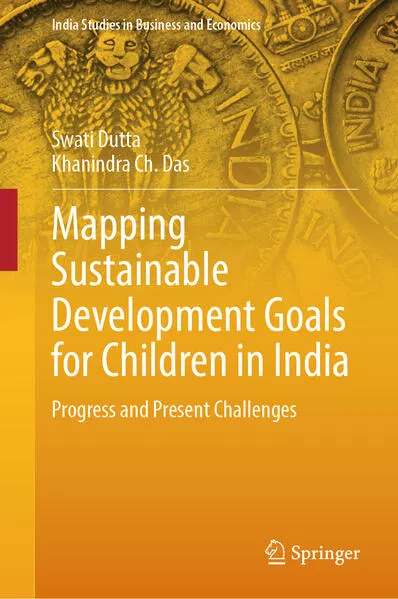
- Publikationen ca: 3
- Fragen & Antworten
Swati Dutta
Dr. Swati Dutta is Fellow at Institute for Human Development, New Delhi. She obtained her PhD from Institute for Financial Management and Research, the University of Madras with IFMR fellowship. Her research interests are child deprivation, multidimensional poverty, human development, financial inclusion, women empowerment, food and nutrition security, and financial inclusion. She has to her credit more than 25 papers published in international journals. She is assistant editor of Indian Journal of Human Development.
Dr. Khanindra Ch. Das is assistant professor of economics at BIMTECH, Greater Noida (NCR), India. His teaching philosophy is to impart up-to-date knowledge drawn from relevant disciplines that can be applied in business and society. His research aims at generating new insights, through integration of disciplines and ideas, which can shape policy and practice in various spheres for improving economic and societal outcomes.He is editor of BIMTECH Business Perspectives.
Mapping Sustainable Development Goals for Children in India
This book offers a comprehensive exploration of child well-being within the context of Indian states, focusing on the progress made in eight Sustainable Development Goals (SDG) targets. What sets this book apart is its unique perspective, as it delves into the well-being of children, examining their experiences across six key dimensions: child poverty and deprivation, anthropometric failure and undernutrition, child health and healthcare services, quality education, violence and gender equity, and overall child well-being.
Mapping Sustainable Development Goals for Children in India
This book offers a comprehensive exploration of child well-being within the context of Indian states, focusing on the progress made in eight Sustainable Development Goals (SDG) targets. What sets this book apart is its unique perspective, as it delves into the well-being of children, examining their experiences across six key dimensions: child poverty and deprivation, anthropometric failure and undernutrition, child health and healthcare services, quality education, violence and gender equity, and overall child well-being.
Mapping Sustainable Development Goals for Children in India
This book offers a comprehensive exploration of child well-being within the context of Indian states, focusing on the progress made in eight Sustainable Development Goals (SDG) targets. What sets this book apart is its unique perspective, as it delves into the well-being of children, examining their experiences across six key dimensions: child poverty and deprivation, anthropometric failure and undernutrition, child health and healthcare services, quality education, violence and gender equity, and overall child well-being.

